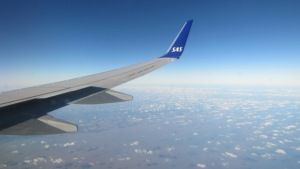General
SAS shares falling out of the sky amid rumours airline could be delisted
This article is more than 2 years old.
US capital fund expected to take control with Danish state still onboard as a minority stakeholder

Heavy turbulence at SAS (photo: Pixabay)
For an airline that hasn’t sustained a fatality since 2001, SAS has had a huge number of crises in recent years.
But they are mere turbulence compared to the crash in its share price this morning, which has tumbled by over 30 percent – talk about falling out of the sky.
“Investors in SAS have been blindfolded for a while,” contended Sydbank’s head of equity analysis and aviation analyst, Jacob Pedersen, to TV2.
One disaster after another
A Berlingske report yesterday claimed it will soon be delisted and, according to analysts, it has been a long time coming.
Since the 15-day pilot strike last summer, which cost the airline 1.3 billion kroner and led to it seeking bankruptcy protection in the US, SAS has been obliged to publish monthly financial reports, and 2023 has not been pleasant reading so far.
For the four months ending March 31, the airline’s losses totalled a further 2.4 billion kroner.
A long time coming
According to Pedersen, SAS’s woes have been common knowledge for weeks, so it was surprising to see no reaction in the markets until now.
“I have been a stock analyst for 20 years, but there are some things that you just find difficult to explain. And it has been difficult to explain why SAS should have a stock market value of a few billion kroner,” he told TV2.
“There are lenders who have not received everything that SAS owes them.”
Wednesday full of woe
Its share price fell by 10 percent on Tuesday and as much as 37 percent on Wednesday and, according to Berlingske, there is a very real danger the shares could end up being worthless at this rate.
Should SAS be delisted, it is thought likely the Danish state will take control of the airline together with US capital fund Apollo.
Apollo last year reportedly lent SAS over 5 billion kroner whilst acquiring shares that could eventually represent a controlling stake of 70 percent.










































